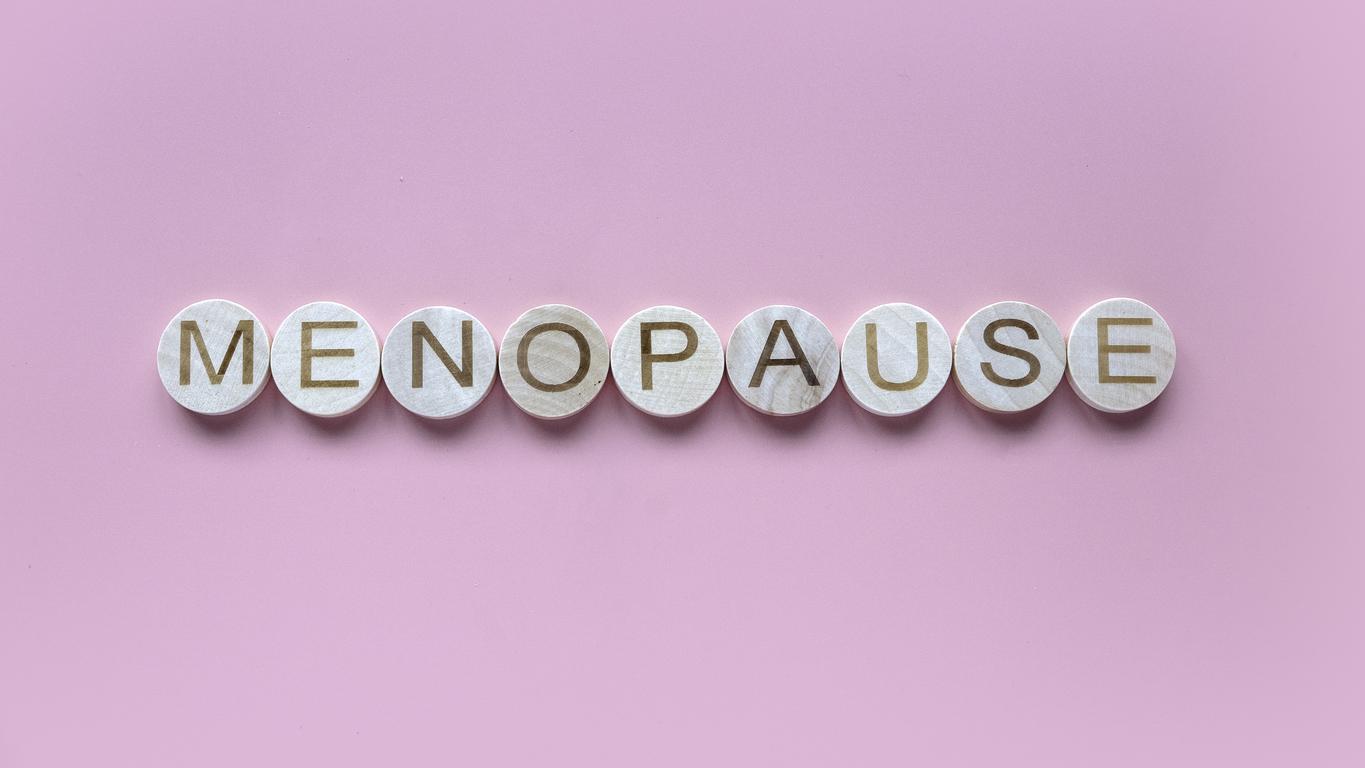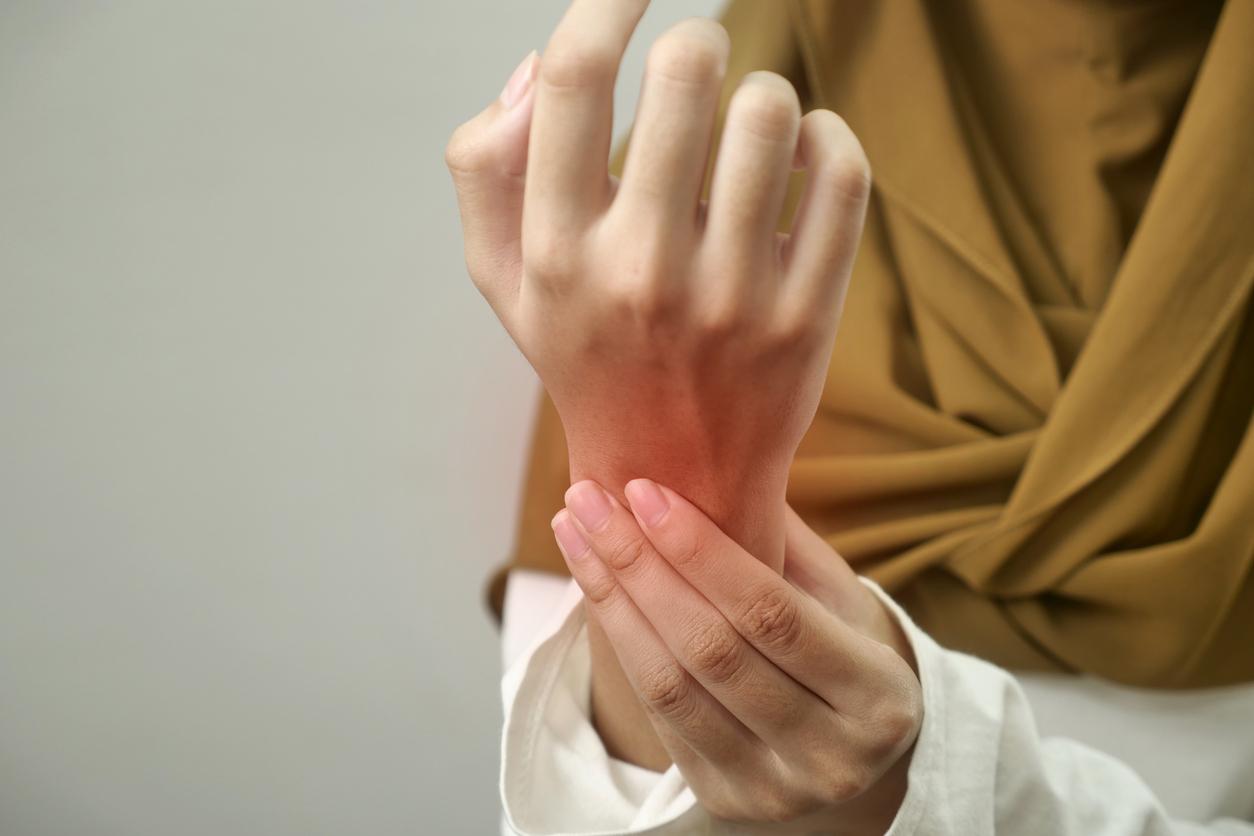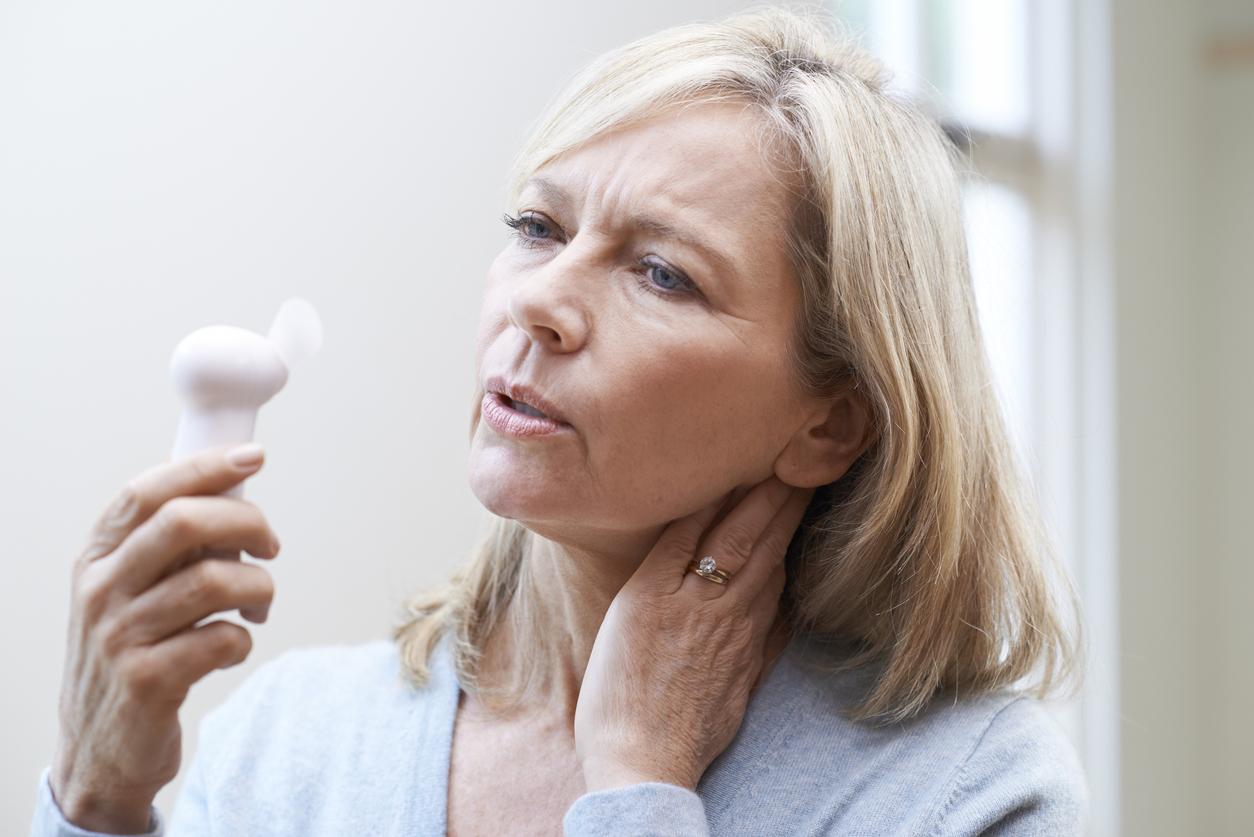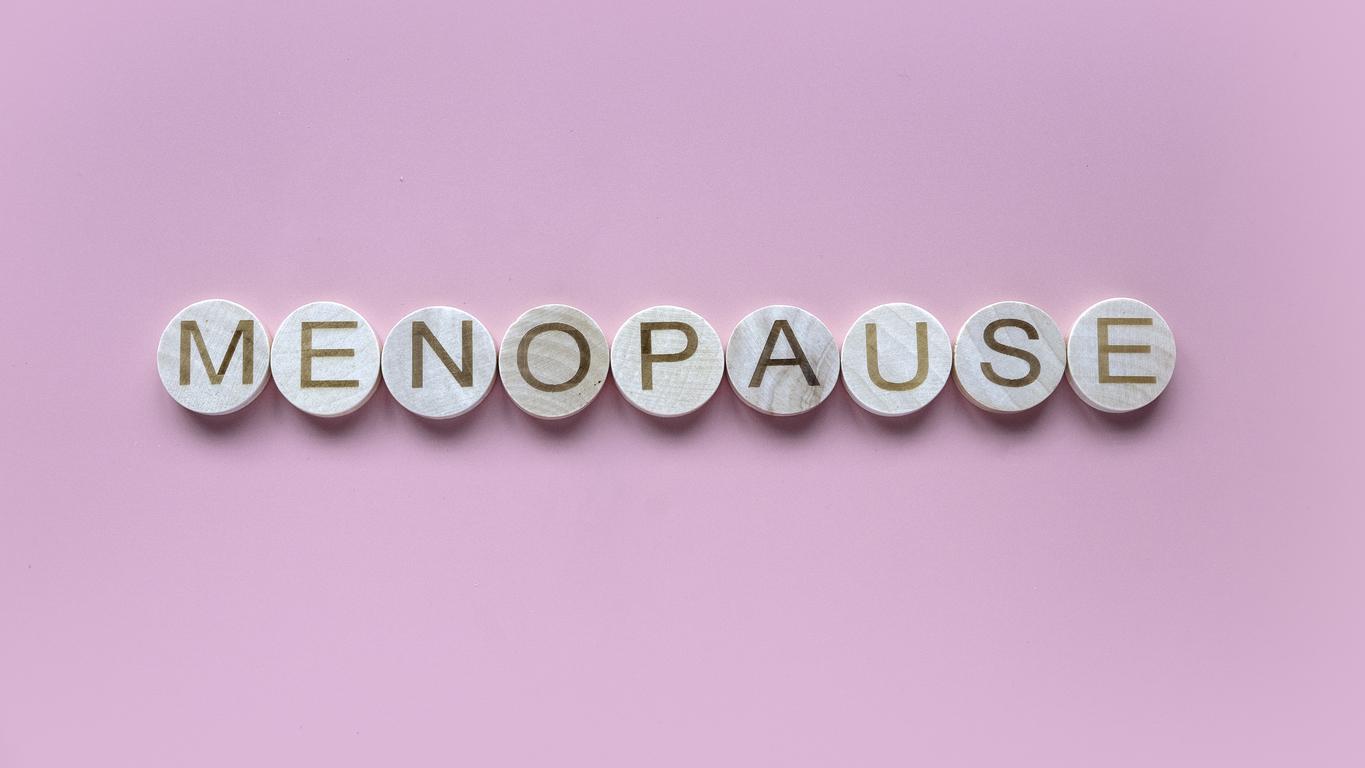A well-known symptom of perimenopause and menopause, hot flashes can be surprising when they first happen to you. But how can we be sure that this is what it is?

- Hot flashes are caused by an increase in body temperature that results in a feeling of heat that begins in the chest and quickly spreads to the neck and/or face.
- Often, the affected person suffers from other symptoms: heavy sweating, skin redness, anxiety, rapid heartbeat.
- If you experience hot flashes, it is best to talk to your doctor because they may be a sign of another health problem such as thyroid disease or side effects from taking medications.
Hot flashes are a vasomotor symptom of menopause. They usually occur for the first time perimenopause, a period that begins up to a decade before. Furthermore, their frequency and severity vary greatly from one woman to another. What are the unmistakable signs?
Hot flashes during menopause: what are they?
“During perimenopause and menopause, you become very sensitive to very small changes in temperature, explains Dr Claudia Mason, gynecologist specializing in menopause, in an article in the Cleveland Clinic. The brain activates the body to start releasing heat, and that’s when you get a hot flash.“
Hot flashes come on suddenly and are brief: between 30 seconds and 5 minutes. They are due to an increase in body temperature, linked to falling hormone levels. They result in a feeling of heat that begins in the chest and quickly extends to the neck and/or face.
Often the affected person suffers from other symptoms:
- heavy sweating;
- skin redness;
- anxiety ;
- rapid heartbeat.
And it seems counterintuitive, butWhen the hot flash is over, it is possible to feel cold.
“All the blood vessels in your chest and face expand to release heat, then sweating occurs to cool your body, explains Dr Claudia Mason. Sweating has a cooling function, but as sweat evaporates from your skin, it can make you feel cold.“
Hot flashes: could it be something other than menopause?
If hot flashes are a sign of perimenopause or menopause, the doctor reminds that they are not responsible for all hot flashes. If you’ve spent the day in the sun, you’re probably just hot.
However, the healthcare professional also warns women who have hot flashes when they are not old enough to be menopausal. SIf you experience any, it is better to talk to your doctor. “If you’re 21 and on birth control, you probably don’t have perimenopausal hot flashes.”warns the gynecologist. “On the other hand, if you’re 75 and you wake up one day to have your first hot flash, that’s not related to menopause either. These are things that need to be addressed ‘an investigation for other causes’.
Indeed, these hot flashes could be a sign of another health problem such as thyroid disease, cancer treatment or side effects related to taking medications.
Menopause: how to limit hot flashes?
To limit the occurrence of hot flashes linked to menopause or premenopause, it is recommended:
- avoid alcohol, coffee and foods that are too hot or spicy, depending on theHealth Insurance ;
- to keep your home cool;
- to wear several layers of light clothing to be able to remove them;
- to reduce daily stress and anxiety;
- to use misters;
- to adopt a healthy and balanced diet.
“Many people [ne parlent pas] from their menopausal symptoms and simply suffer in silence, concludes Claudia Mason. But treatments are available. Your GP has lots of advice to give you.”
















